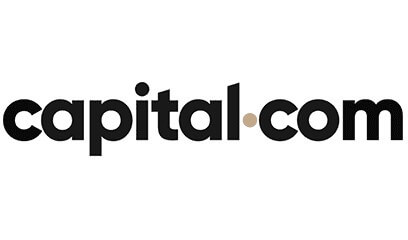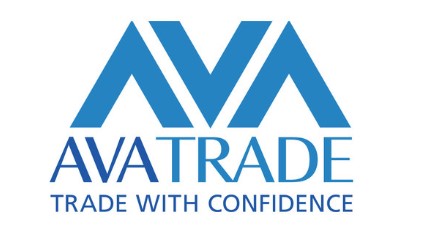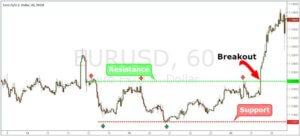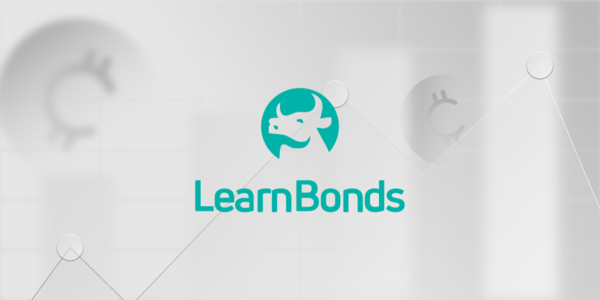CFD Trading in Malaysia – A Beginner’s Guide
Contracts for difference (CFD) trading can give you exposure to virtually any financial asset. With CFDs, you can trade stocks, bonds, forex, cryptocurrency, commodities, and more. The key to CFD trading is that you don’t own the underlying asset, but still get financial exposure to it. This can make it easier and more affordable for beginners to get into trading.
Sound interesting? In this guide, we’ll cover everything you need to know about CFD trading in Malaysia. Not only do we explain the basics of CFD trading, but we also review the best CFD brokers and take you through you can get started trading CFDs today.
-
-
How to Trade CFDs in 3 Quick Steps
Want to start trading CFDs in Malaysia right away? You can place your first trade with these three steps:
Step 1: Choose a Malaysia CFD Trading Platform
In order to trade CFDs in Malaysia, you’ll need a CFD trading platform. There are many on the market, but choosing the right one can be tough. To help, we’ve reviewed five of the best CFD brokers operating in Malaysia today.
1. Plus500 – Low Cost CFD Trading Platform
Founded in 2008, Plus500 is a highly regulated broker operating under the oversight of the FCA(UK), MAS (Singapore), and ASIC (Australia), among other top-tier authorities. It offers a stunning range of CFDs, including CFDs for cryptocurrencies and on 50 currency pairs with leverage up to 300:1. That’s more forex trading pairs and leverage than most dedicated forex brokers offer.
The Plus500 trading platform is available on web, desktop and mobile. MPlus500 offers access to advanced charting tools with numerous technical indicators as well as customizable price alerts so that you can monitor your trades. Malaysian CFD traders can use 103 technical indicators and 21 drawing tools, which are excellent for technical analysis.
This broker offers two types of trading accounts: the Standard, which offers a maximum leverage of 1:30 for forex trades, and the Professional Account, which comes with leverage of up to 1:300 at no extra cost. To qualify for the Professional account, you must have performed an average of 10 transactions of significant size over the last four quarters and your portfolio must exceed MYR2,000,000 ($500,000).
You can get started on Plus500 with a deposit of £100 (around 543 ringgit), and there’s a range of payment options to choose from, including PayPal. If you want to do your forex trading on the go, you can download the Plus500 app for iOS and Android devices.

- Asset Variety: Wide range of CFDs
- Trustworthy: Highly regulated
- User-friendly: Clean, understandable platform
- Best for Beginners: Limited features for advanced traders
80.5% of retail investors lose money when trading CFDs with this provider.2. Capital.com - Good for Professional CFD Traders
Founded in 2016, Capital.com is one of a new breed of online trading platforms that integrates with artificial intelligence to enhance its users’ trading experience. This broker offers CFD trading on stocks, currencies, cryptocurrencies, commodities and indices. It is regulated by reputable bodies such as CySEC (Cypress), the FCA (UK), and the National Bank of Belarus.
Capital.com does not charge trade commissions, like many other Malaysia CFD brokers, but you will need to pay a spread on every trade. For example, the EUR/USD pair is charged a spread of 0.6 pips (0.006%), which is very competitive relative to other forex CFD brokers. Swap rates for positions held overnight apply, though Capital.com will only charge you based on the amount you borrowed from the broker and not your entire position.
There are three trading account tiers at Capital.com. All the accounts give you access to more than 2,000 equity CFDs and 20 index CFDs. The Plus account requires a minimum deposit of MYR400 ($100), while the Standard account requires a minimum deposit of MYR12,000 ($3000). The only major difference between the two is that the Plus account offers custom analytics.
The Premier account, which requires a minimum deposit of MYR44,000 ($10,000), has everything included in the Plus account plus access to premier events and exclusive webinars. With all accounts, you can trade on leverage up to 500:1.
This broker’s trading platform is user-friendly and equipped with an extensive charting package, drawing tools, and over 70 technical indicators. There is also a mobile trading platform that comes with all the functions found on the web-based platform. However, advanced traders will want to note that Capital.com does not support automated trading.
- AI: Trade with advanced analytics
- Trade Across Assets: Wide range of CFDs
- Tight Spreads: Relatively inexpensive trading
- No Automated Trading: Cannot set and forget a strategy
There is no guarantee you will make money with this provider.3. AvaTrade – Offers Swap-Free CFD Trading Accounts
AvaTrade is one of the most popular CFD brokers in Malaysia, in no small part because it offers accounts that comply with the strict guidelines of Sharia law. These accounts are swap-free, which means you won’t pay overnight charges on leveraged CFD trades. There’s a good range of assets to trade on the platform.
This broker does not charge any commissions and the spreads depend on the asset you are trading. For instance, individual shares are subjected to a spread of 13 pips (0.13%), which is very competitive. The only downside to pricing at AvaTrade is that this broker charges an inactivity fee of MYR200 ($50) per month if you do not place a trade for more than three months. Leverage ranges from 2:1 on cryptocurrencies to up to 400:1 for forex.
One nice thing about AvaTrade is that it includes multiple platforms for copy and algorithmic trading. You can access the AvaTrade platform on the web or on your mobile device to trade CFDs from anywhere. Or, sign up for a MetaTrader 5 account through AvaTrade to get access to custom trading strategies, trading signals, and automation.
AvaTrade is regulated by various bodies and authorities across the world, including ASIC (Australia), the FCA (UK), and the Central Bank of Ireland.
- Islamic Accounts: Caters to Malaysian traders
- Access Anywhere: Supports web and mobile trading platforms
- Customer Support: Get help when you need it
- Fees: Charges an inactivity fee
There is no guarantee you will make money with this provider.4. Forex.com – Specialist Forex CFD Broker
Forex.com is owned and operated by GAIN Capital, a company listed on the NYSE. It is regulated by top-tier authorities such as the CFTC (US) and the FCA (UK).
The site offers more than 4,500 CFD instruments across a wide variety of asset classes, though, as the name suggests, it specializes in forex CFDs. This broker doesn’t charge trading commissions and the spreads are very tight if you’re trading forex CFDs. However, the spreads are noticeably less generous when it comes to stock CFD trading. You can trade forex CFDs with leverage up to 100:1.
Forex.com is a good choice for CFD traders for two reasons. First, its flagship platforms Advantage Trader (accessible online and on the desktop) and Web Trading cover all bases. They are user-friendly, feature-filled and highly customizable. You can also access the MetaTrader5 trading platform through this brokerage.
Secondly, Forex.com’s pricing structure rewards active traders. They get access to special pricing tiers, the highest of which limits all spreads to a maximum of 0.84 pips.
- Inexpensive Trading: Pricing program for active traders
- Excellent Platform: Feature-filled for advanced trading
- Trade Widely: Plenty of CFD instruments
- High Spreads: Especially for stock CFDs
There is no guarantee you will make money with this provider.5. IG - CFD Spreads From 0.6 pips
Established all the way back in 1974, IG is one of the best-estalished brokers around and is regulated in multiple jurisdictions. This UK-based broker offers huge range of financial instruments, with tens of thousands of CFDs available to trade spanning forex, stocks, crypto, commodities, options, futures and more.
This broker offers a number of different platforms, including its own proprietary trading platform, which is highly customizable with an extensive charting package, ProRealTime, and MetaTrader 4, all of which offer a great range of advanced trading tools. There’s also a good range of educational resources, making it a good choice for both beginners and experience traders.
In terms of CFD fees, IG charges a commission for stocks, which is 0.10% for UK and European shares and 2 cents (MYR 0.085). For all other asset classes IG charges competitive spreads, starting from just 0.6 for some forex pairs. Other charges include a MYR 36 ($12) inactivity fee, a MYR 200 ($50) account documentation fee and a 0.50% conversion fee. ProRealTime charts also cost MYR 120 ($30) per month.
- Huge Range of Assets: More than 17,000 tradable assets
- Advanced Platform: Extensive charting package
- Low Cost: Very competitive spreads on most asset classes
- High Fees: Charges traders for live data and charts
There is no guarantee you will make money with this provider.Step 2: Learn How the CFD Trading Market Works in Malaysia
Before you can dive into CFD trading, it’s important to understand how the market works and the associated risks. Let’s take a look at how CFD trading works in Malaysia.
What is CFD Trading?
CFD trading involves trading contracts to buy or sell an asset at an agreed-upon price. If the price of the asset rises, your profit is the difference between what price you bought the asset at and the new, higher price. In this sense, trading CFDs give you the same exposure to the price of an asset as buying an asset outright.
But when you trade CFDs, you don’t actually own the underlying asset at any point. So instead of owning the underlying asset like when you buy Bitcoin or buy stocks, you’re simply speculating on the price. Much of the forex trading that takes place online is also done via CFDs in order to avoid conversion costs. CFDs remove much of the logistical and legal hassles that can be associated with owning foreign currencies or cryptocurrencies outright brings logistical and legal hassles that don’t exist with CFDs.
One of the major ways in which CFD trading differs from some traditional forms of trading is that it allows you to go short, meaning you can speculate on the price of an asset going down as well as up.
Another thing to consider when trading CFDs in Malaysia is that you can trade with leverage. Essentially, can be used to make larger trades by borrowing capital from your broker. For example, a 1,000 ringgit trade is worth 10,000 ringgit if you apply 1:10 leverage.
While some brokers offer users the chance to both buy assets and trade CFDs, many are CFD-only. You should keep in mind that when trading CFDs, you won’t be eligible for things like dividend payouts from stocks.
Is CFD Trading Halal?
A major question many Muslims face is whether CFD trading in Malaysia is Halal, or allowed by Islam. CFD trading is not considered halal because you don’t own the underlying asset in order to make a profit. In Islam, this is considered as Riba, which is strictly prohibited by the religion. Leveraging your position to increase your potential profits is also not allowed by Islam.
That said, you can avoid breaking any tenets of Islam by using a swap-free CFD trading account. With a swap-free account, your broker doesn’t charge you any fees for holding positions overnight or require any commissions. Since you are not paying for the service in your account directly, you are not taking part in Riba.
Is CFD Trading Legal in Malaysia?
Yes, CFD trading is legal in Malaysia. Brokers are regulated by the Securities Commission Malaysia (SCM), which was established in 1993 by the Securities Commission Act. This regulatory body reports directly to the Minister of Finance. In April 2018, the SCM issued new regulations to govern CFD providers in Malaysia.
To verify authorization from the SCM, check the bottom of a trading platform’s homepage under disclosure text for the relevant registration number.
What Regulations are in Place for Buying CFDs Shares in Malaysia?
The SCM put new guidelines for Malaysia CFD brokers into place in April 2018. These regulations set out how much leverage Malaysian CFD traders can apply when trading different assets, such as shares, forex, and commodities.
They also lay out what types of assets, and particularly stock shares, can be traded through CFDs in Malaysia. Specifically, any company that lists on an exchange outside of Malaysia must have a market cap of at least MYR3 billion for its shares to be traded with CFDs.
What Risks are Involved with Buying CFDs in Malaysia?
Trading CFDs can bring profits, but it also carries some risk. It’s extremely important to understand the risks of CFD trading in order to avoid losing money with this derivative.
Market Risk
CFDs are derivative assets that you can use to speculate price movements of underlying assets such as stocks. If you believe the price will increase, you go long. You should go short if you believe the price will drop. You predict and hope the price will move in the direction that will offer you gains. However, no matter what your experience level is, the unexpected can always happen.
Because of the nature of CFDs, and particularly leveraged CFD positions, small changes in price can have significant impacts on the value of your position. For example, at 10:1 leverage, a 1% drop in the price of an asset can mean a 10% loss for you.
Furthermore, if your position begins to lose money, your broker may ask you to deposit more money in your trading account to cover the required margin. This in turn may force you to close your position and sell at a loss.
Counterparty Risk
The counterparty is the entity which offers you tradable assets.
In CFD trading, you don’t own the asset underlying the derivative—only the contract itself. Counterparty risk occurs if the CFD provider is a market maker and fails to fulfill its financial obligation. In such a circumstance, your contract essentially becomes worthless because there is no way to redeem it. This is why you need to make sure you only use licensed and regulated CFD brokers.
Liquidity Risk
If there is low liquidity for an underlying asset, your CFD broker can require you to deposit more money to meet your trade margin. In addition, since the financial markets move very fast, the price of a CFD can fall before your trade is executed at the specified price. This is known as gapping and means that you may earn less profit than you thought you would from a trade.
Step 3: Learn CFD Trading Strategies
The key to CFD trading in Malaysia is to approach it with a well-developed strategy. There are many different strategies, each with their own complexities, strengths, and weaknesses. To help you get started, we’ll take a look at four of the most popular strategies you can use for trading CFDs.
Swing Trading Strategy
Swing trading is a strategy that aims to identify changes in the momentum of an asset. When a stock, for example, rebounds from a recent low, swing traders will buy that stock and profit while it has high upward momentum right after the bounce.
When swing trading, it’s important that you identify support and resistance levels for an asset of interest using a variety of technical indicators. Most swing trades occur over a few days to several weeks, or as long as strong price momentum lasts.
Hedging
Hedging is a trading strategy meant to cushion you from the risk of adverse price fluctuations against an open trade. Essentially, you can bet against your trade, either by selling CFDs for the same asset or buying CFDs for an asset that tends to move in the opposite direction from the one you are currently invested in. Hedging is good for protecting one of your open positions from a potential market crash, among other things.
Short-term Trading vs. Long-term Trading
Short-term trading attempts to capitalize on changes in price that happen over seconds or minutes, while long-term trading looks for profits on the scale of weeks or months. It requires a lot of discipline and you must keep up-to-date with the financial and political environments. This strategy is action-packed and you will be highly active in the market throughout the day.
Long-term trading requires patience above all else. You will buy and hold a CFD and wait for the opportune moment to sell it. When long-term trading, be sure to use stop losses to protect against a significant loss.
Breakout Strategy
To trade breakouts, you first need to identify a key price point for the underlying asset you want to trade. When the price breaks above or below this price level, it will often make a large move in either direction soon after. So, you can buy or sell CFDs to take advantage of this volatile price action.
When using this strategy, avoid trading when the market does not offer clear signals. It is generally much better to miss an opportunity than to lose money when you cannot tell the direction of a trend with certainty.
Step 4: Open a CFD Trade
Ready to get started with CFD trading in Malaysia?
To get started, you just need to open an account with one of the brokers we reviewed above.
Choose the one that best suits your needs – the registration process should be swift.
Pros and Cons of CFD Trading
Pros:
- Low-cost Entry—Get access to underlying assets at a lower price compared to buying outright
- Long or Short—Speculate on prices going down as well as up
- Leverage—Increase the effective size of your position without depositing more money
- Global Markets—Trade forex, stocks, cryptocurrencies, commodities and more
- Unlimited Trading—CFD markets are not bound by day trading restrictions that apply to traditional instruments
Cons:- Little Regulation—CFD trades are not closely monitored by regulators
- Risks—CFDs come with liquidity and leverage risks
- Spreads—Reduce the profit potential of trading small price movements
Conclusion
CFD trading in Malaysia offers a way to access global markets for shares, forex, commodities, and cryptocurrencies, all without the hassle of owning these assets outright. Short-term investors may be able to profit from trading CFDs, while long-term investors can use these derivatives to build a diversified portfolio. With the ability to go short and apply leverage, CFDs open up a whole new world of trading opportunities.
Resources
To ensure we bring you the most reliable and accurate information possible, our writers use primary sources to support their content. These include studies, government resources and commentary from industry experts.
- Securities Commission Malaysia. “Guidelines on Contracts for Difference.” https://www.sc.com.my/api/documentms/download.ashx?id=51c97330-3721-4d50-9f28-374f582d3164. Accessed June 8, 2020.
- Bank Negara Malaysia. “Framework for Electronic Trading Platforms.” https://www.bnm.gov.my/index.php?ch=57&pg=150&ac=859&bb=file. Accessed June 8, 2020.
FAQs
Is CFD trading in Malaysia safe?
Yes. CFD trading is legal in Malaysia and falls under the oversight of the SMC. Regulators have set in place protective measures for traders including a compensation scheme in case things take a negative turn.
Will I need to pay taxes on the profits I make?
According to Malaysian regulations, traders are required to pay income tax on all profits from trading. Thus, the amount you need to pay will be based on your trading income for the entire year.
Can I use CFDs for hedging against losses?
Yes. If you anticipate that some assets in your existing portfolio are likely to suffer a dip in value, you can go short on the asset using a CFD trade. This way, the gains you make from the CFD trade would offset the asset’s drop in value.
What is a maintenance margin in CFD trading?
This refers to a margin that you add to your deposit margin in case your trade gets close to incurring a loss. The losses in question would be higher than the deposit margin and the funds in your account.
Is it possible to trade CFDs without leverage?
While some providers may allow this, others strictly require all trades to be leveraged. Always check this before signing up.
Does CFD trading follow Sharia Law?
CFD trading does follow Sharia laws, as long as you stick to using a swap-free CFD account. This is important to violate Sharia laws related to profiting from an asset you do not own outright. Swap-free CFD trading accounts are specifically designed for Muslim traders to ensure that trading meets all religious requirements.
Michael Graw
View all posts by Michael GrawMichael is a writer covering finance, new markets, and business services in the US and UK. His work has been published in leading online outlets and magazines.
Latest News
WARNING: The content on this site should not be considered investment advice and we are not authorised to provide investment advice. Nothing on this website is an endorsement or recommendation of a particular trading strategy or investment decision. The information on this website is general in nature, so you must consider the information in light of your objectives, financial situation and needs. Investing is speculative. When investing your capital is at risk. This site is not intended for use in jurisdictions in which the trading or investments described are prohibited and should only be used by such persons and in such ways as are legally permitted. Your investment may not qualify for investor protection in your country or state of residence, so please conduct your own due diligence or obtain advice where necessary. This website is free for you to use but we may receive a commission from the companies we feature on this site.
Copyright © 2022 | Learnbonds.com
We use cookies to ensure that we give you the best experience on our website. If you continue to use this site we will assume that you are happy with it.Scroll Up





 CFD trading involves trading contracts to buy or sell an asset at an agreed-upon price. If the price of the asset rises, your profit is the difference between what price you bought the asset at and the new, higher price. In this sense, trading CFDs give you the same exposure to the price of an asset as buying an asset outright.
CFD trading involves trading contracts to buy or sell an asset at an agreed-upon price. If the price of the asset rises, your profit is the difference between what price you bought the asset at and the new, higher price. In this sense, trading CFDs give you the same exposure to the price of an asset as buying an asset outright.


